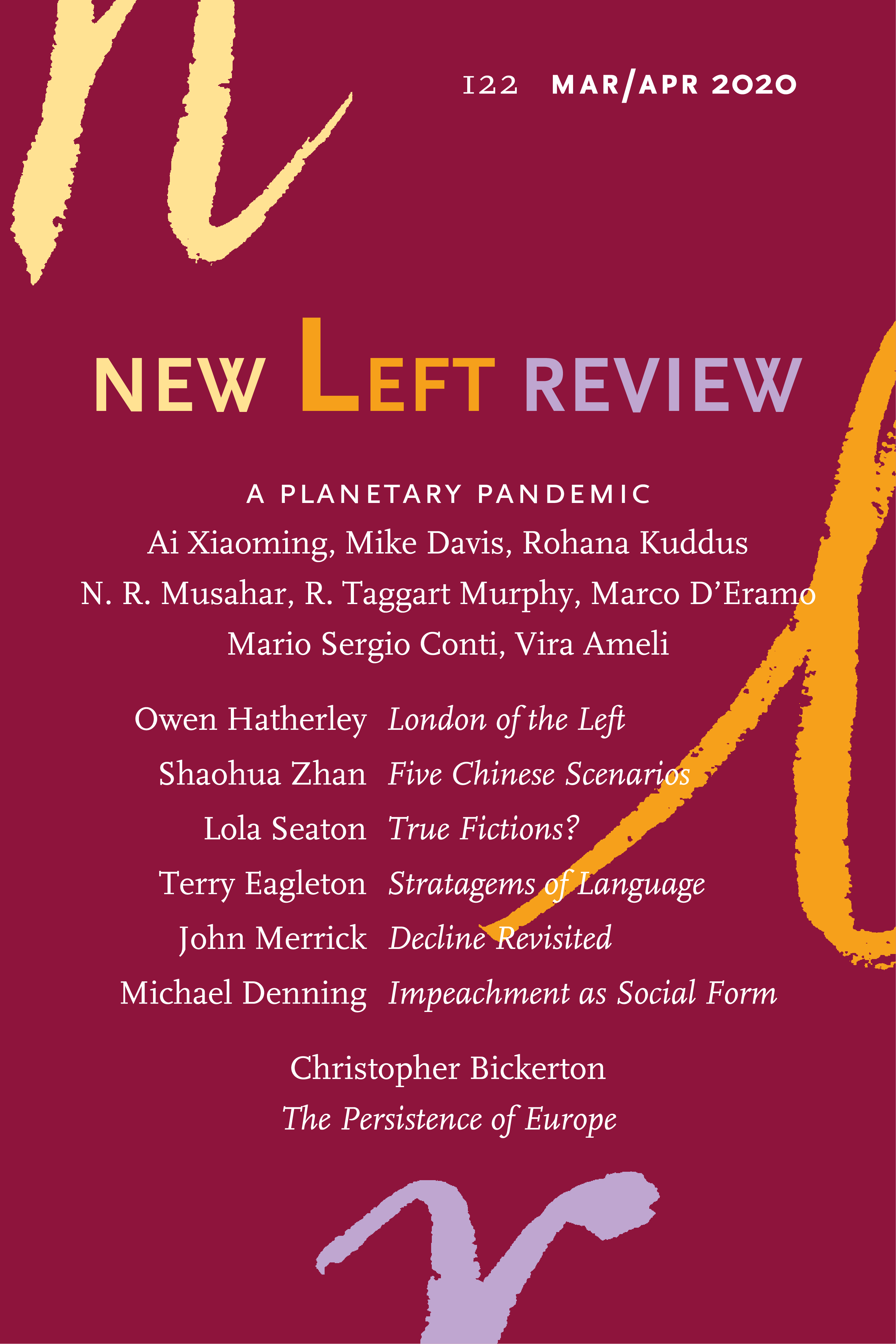Opening a set of reflections on COVID–19, the author of The Monster at Our Door puts the novel virus in its epidemiological context.
Notes from the epicentre of the pandemic, taken from the film-maker’s remarkable multimedia postings under lockdown in Wuhan.
While Agamben denounces the authoritarian nature of the COVID–19 shutdowns, a Swedish tycoon trembles at the mass wrath their economic consequences may provoke. Can they both be right?
The chaos caused by Modi’s ill-prepared lockdown, as migrant workers set out for their villages and death from starvation looms as a greater threat than the disease.
Bumbling ministers, regional rivalries and pious stigmatization of the victims compound inadequate hospital provision in Indonesia’s belated response to COVID–19, amid the uncounted dead.
Unravelling of the Bolsonaro presidency in the face of mounting opposition and a contagion threatening to wreak havoc on the favelas.
Battling the pandemic in hard-hit Iran, hampered by Washington’s punitive sanctions regime.
The chaotic Anglo-American reactions to COVID–19 contrasted with the seemingly more successful East Asian regimes, in all their variation.
How to account for the recurrent forms of populism, from Bonaparte to Trump? Components of a theory in Marx’s account of variant ‘lesser’ modes of exploitation—rent, tax, interest—and their necessary forms of appearance.
The capital of capital, or a melting-pot city of workers, historically governed from the left? Owen Hatherley unearths inspiration for present-day struggles from London’s municipal-socialist past.
What does the PRC’s opening to global agribusiness presage for the hundreds of millions who still farm its land? Shaohua Zhan sets out the positions that define the most contentious issue in China today.
Christopher Bickerton on Ivan Krastev, After Europe and Jan Zielonka, Counter-Revolution: Liberal Europe in Retreat. Contrasting solutions to the dilemmas bedevilling the EU.
Terry Eagleton on Ken Hirschkop, Linguistic Turns 1890–1950. Language theory before post-structuralism, from Saussure and Shklovsky to Bakhtin.
Lola Seaton on Janet Malcolm, Nobody’s Looking at You. The art and craft of literary non-fiction, deploying the stratagems of the psychoanalyst’s couch.
John Merrick on David Edgerton, The Rise and Fall of the British Nation. Reversing accepted narratives of 20th-century decline, a revisionist account of the 1950s as the UK’s golden age.
